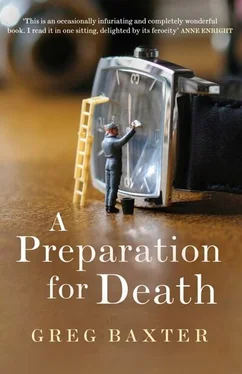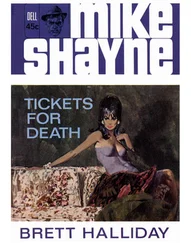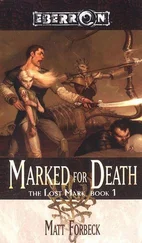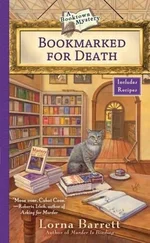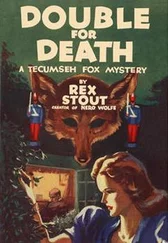Randomness? I withered into myself. He was silent for a few moments, and I felt very stupid. I started to wonder if he might turn back and find someone more interesting. We stopped at the light and he turned to me. He said, Greg, you can’t live your life that way. You can’t be afraid to leave your house.
When we got back to Rebel’s Rest, there was nobody about. Everyone was eating lunch or taking a midday nap. Barry said he needed some sleep. He shook my hand and said, Thanks for our day. Two days later he would inscribe the same thing for me in a copy of one of his books.
I took a seat on the patio and grabbed a beer — even though drinking wasn’t allowed at that hour — and smoked a lot of cigarettes on my own. Brent and Marc showed up after a while. They asked if Barry had liked my story, and I said he had, but I’d forgotten almost everything he’d said about it. In any case, I’d forgotten my story. Gradually the dissident wing trickled in. By that point in the conference, we could locate midday drinking by its scent, anywhere on campus. I have a photograph from that afternoon. A woman who had joined us took it, then mailed us copies. In it, we are all pretending not to notice the camera. The day is bright and everyone has a drink in his hand. I am perched on a railing. There are some people beside me. Some others are sitting in chairs. I can see what I am thinking — that I was finally part of something, that I could lead something large and magnificent. That I could annihilate the lukewarm vision of American letters. That by desiring I created — a book, a life, a movement. What a foolish illusion. I spent many years trying to interpret existence, when I ought to have been squandering it. What is there to learn from life, except that it ends, and for a little while you are alive? I could not even, until recently, comprehend the beauty — the unimportance — of my afternoon with Barry, who is still alive, I think, and is pausing to admire strange gas stations, searching for the experience of a cheeseburger, accidentally teaching his own life.
3. The City of Perpetual Night
My grandfather, Herbert Fuchs, was a schoolteacher in Vienna before the Second World War. In July 1944 he was killed by a bomb in a small Carinthian village, a village of no importance, where he was serving as an officer in the Waffen-SS. He never received the letter sent by his wife Maria, my grandmother, with news of the birth of his second son, my father; it was returned unopened not long after Maria received, by post, the notice of his death. She used to tell this story with no emotion, though I am certain that, of her three husbands, Herbert was the only one she loved. In fact, except for Herbert’s sister, Erika, nobody has ever told the story of his death with sorrow.
Although I know almost nothing of him, or perhaps because of that, Herbert lurks in the interstices of my life with the tormenting persistence of a sense that you have forgotten something. His death was the first and most drastic accident to turn the accidental course of the world toward my existence. Only something drastic would do. Without Herbert’s death, and Maria’s emigration to the States to remarry, my mother, who came from Splendora, Texas, would have never met my father at a bus stop in Austin.
Over several years, Maria told me portions of her story before and after the war, in the hope that I’d write it. She did not wish to be preserved forever — she is no egoist — but I think she wanted very much to preserve her memory of Vienna, of Herbert, to fix it in an unalterable state, and leave something for the rest of us, so we would know where we had come from. It is not extraordinary, and there is no wild end to it. There is only the commonplace irony of a crippled mind at the end of a rich history: at the age of eighty-seven, she lives in a nursing home in San Antonio, Texas, as far from her own life as she could ever be, and suffers from vascular dementia. Within her day-to-day pattern, she keeps up with familiar identities and places, but anything outside it — me, for instance — is lost unless it walks right in front of her.
Maria met Herbert in a Viennese military hospital in 1942. She worked as a volunteer nurse, mainly cleaning and re-dressing wounds and keeping soldiers company. He spent weeks there after an artillery shell struck his position: he suffered burns on one half of his body, and his ear was melted off. (When I was younger, I took great pride in a story I must have fabricated, which was that the Russians had cut his ear off to torture him.) They fell in love, I presume, married, and before he was sent back to the war she was pregnant with my father’s elder brother, Peter. He would see her once more when Peter was a baby, and when he left again she was pregnant with my father.
It does not strike me as peculiar — never mind that people do such things all the time in war — that Maria, a woman of considerable good looks, would have wasted no time in marrying him. Herbert was handsome in a way — as with all Fuchs men before and after him, he had striking eyes, commanding eyebrows, and a nose like the keel of a boat — and he was rather dashing, especially in uniform. In the pictures I have seen he beholds everything with the aloof confidence of a man who believes he has everything he wants, or knows that by pretending so, he gets what he wants. In the photos that predate Maria, he, usually in a bathing suit, is surrounded by a handful of pretty women; he is lean, muscular, and his legs — he was also an amateur gymnast — are enormous. When he is not around women, he is usually by himself, in handsome suits, standing in the tipped-hat, hip-forward pose of a rake, usually holding a completely redundant walking stick — a fashion, I hope, of the time. With Maria, in the hospital and later, holding Peter high up in the air, he is a little wiser — more serene than aloof — but very much the same man.
Though his nose was larger than mine — it was truly gigantic — and his chin more square, we look alike, so the thought of what he looked like in Carinthia, dead, commands my attention more and more as I outgrow the age he was. Erika says that only one bomb was dropped, a stray bomb, as though the Allies were simply getting rid of it. Perhaps this is false.
Maria’s father owned a taxi company before the war, and as a girl Maria was sent to school with a car and driver. Her father hated Hitler and the Nazis, and blamed them for everything. He foresaw the demise of his country in their takeover. As a result, Maria was against Hitler also — though really (and she has remained this way her whole life) she had no politics at all. Later, like everything else in Austria, her father’s business collapsed, and rather than face the ignominy of poverty, embodied most painfully in the fact that his daughter might have to walk on her own two feet, he killed himself. She was, I believe, twelve years old.
At the time of the Anschluss, in 1938, Maria was working as a housekeeper and au pair in a large country estate outside Leeds. She was eighteen, and had been there a few years making money and sending it home to her mother. Everybody knew that the annexation of Austria meant war. She was told to mail her passport home at once; there was no such thing as Austria any longer. She should return as soon as her German passport arrived. Maria hated the Germans, and it was disconcerting to find that she was one of them. She has never changed her opinion that Austria and Germany were not just two different countries but two separate civilizations. Germans were sterile mathematicians. They knew nothing of romance and art. They were obedient dogs who ate anything. Even though she held these views, and even though the English family asked her to stay, and even though her mother urged her not to come home, she returned to Vienna.
Читать дальше
